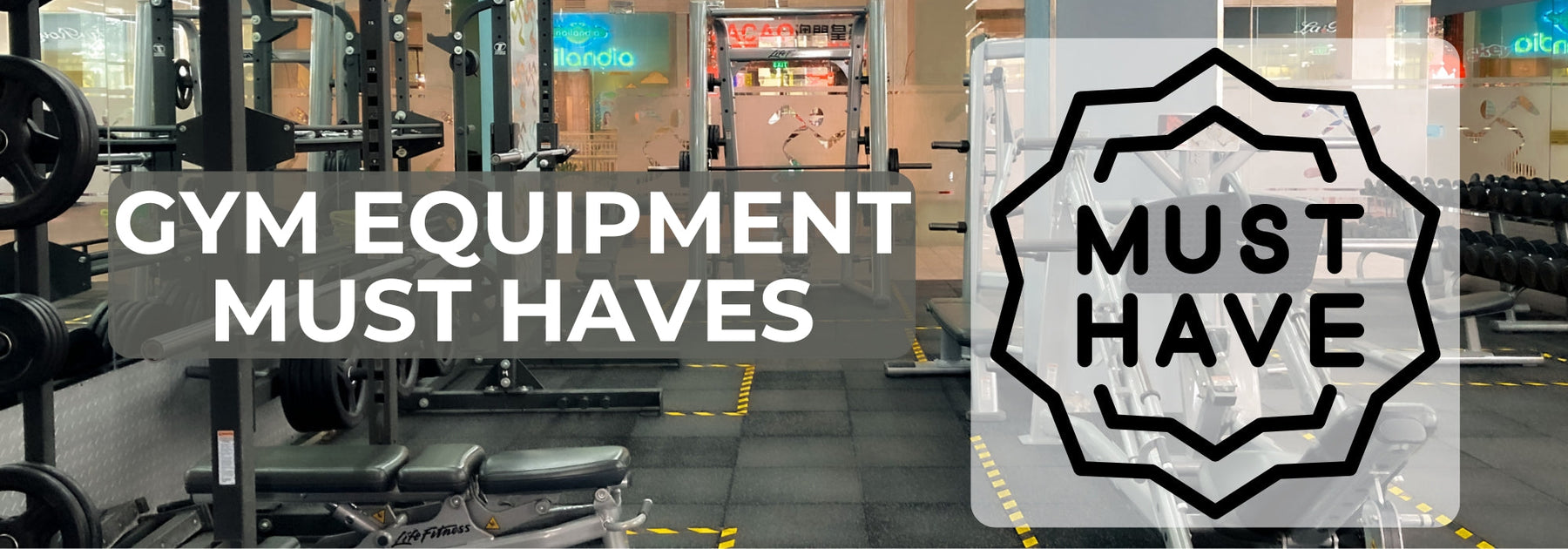Of all the different types of people who need gym equipment, there are many fitness verticals and categories of facilities, each requiring unique equipment based on available space, user experience levels, and traffic.
Whether you’re building a home gym, outfitting an apartment complex fitness center, gathering equipment for tactical training, or creating a privately owned gym, it can be challenging to know what equipment to prioritize.
We’ve divided gym facilities into four groups based on space requirements, commonly used equipment types, and user experience levels.
Whichever category fits your needs, start there—or read through each section to get inspired and learn what larger or smaller gym facilities might have that you can strive for.
Let’s begin with the smallest and generally most compact space: the home gym.
1. Home Gym (Garage, Basement, Spare Room)
A home gym—whether it’s in your garage, basement, or spare room—can be equipped well enough to get you into great shape.
However, since space and budget are often limited, you’ll need to prioritize versatile and essential equipment first. Once the basics are covered, you can add your favorite specialty pieces if you have room left over.
Average Square Footage:
What Fits:
-
1–2 large equipment pieces (e.g., power rack, multi-functional trainer, or selectorized machine)
-
1–2 pieces of cardio equipment (if cardio is part of your regular routine)
-
Free weights (dumbbells, kettlebells) + storage
-
Space for bodyweight exercises and stretching
Our Top Equipment Essentials:
Pro Tip: Focus on space-saving, versatile equipment like folding racks, adjustable benches, and machines with multiple functions. Prioritize the equipment you’ll use for a handful of exercises or more.
Related Article: Complete Gym Equipment Buyers Guide
2. Apartment Complex / Hotel / Multi-Family Gym / Studio
Apartment complexes, hotels, and personal training studios typically have between 500 and 1,500 sq. ft. for their fitness spaces.
These gyms are designed to accommodate a broad user base with varying fitness levels. Prioritizing beginner-friendly, low-liability equipment is key to creating a safe and functional environment.
Average Square Footage:
-
Small amenity gym: 500–800 sq. ft.
-
Mid-sized gym: 1,000–1,500 sq. ft.
What Fits:
Our Top Equipment Essentials:
-
Cardio: 2 treadmills, 2 upright bikes, 1 adjustable elliptical machine
-
Dumbbell Set (5–75 lbs.) with rack
-
2 Flat/Incline/Decline Adjustable Benches
-
Yoga Mat Rack with Bosu Balls, Medicine Balls, and Foam Rollers
-
Functional Trainer + Cable Attachment Set
-
Smith Machine + Rubber Coated Olympic Plates
-
Lat Pulldown/Low Row Machine + Leg Extension/Curl Machine OR Commercial Multi-Station Gym
Pro Tip: Use durable, light-commercial equipment or higher quality with a focus on accessibility, user safety, and longevity.
Related Article: How To Make Your Equipment Last Forever
3. Fire Stations / Police Stations / Smaller Military Training Facilities
Tactical fitness spaces for fire stations, police stations, and military training facilities require rugged, heavy-duty equipment.
These spaces are built for functional, high-intensity training that mimics real-world physical demands.
Average Square Footage:
-
Small tactical fitness space: 600–1,000 sq. ft.
-
Mid-sized tactical training area: 1,500–2,000 sq. ft.
What Fits:
-
Heavy focus on strength and functional fitness equipment (racks, barbells, kettlebells, sandbags, battle ropes)
-
Space for HIIT and functional movement drills
-
2–3 pieces of HIIT cardio equipment (rowing machine, air bike, manual treadmill)
Our Top Equipment Essentials:
Pro Tip: Focus on rugged, multi-purpose equipment that can withstand high-intensity use. Equipment like sleds, plyo boxes, and non-motorized cardio machines are great additions.
4. Corporate Building Gyms / Privately Owned Gyms
Corporate gyms and privately owned facilities typically have 2,000–5,000+ sq. ft. and require full commercial-grade equipment to withstand heavy traffic and extended use.
These gyms offer a comprehensive experience, with equipment for strength training, cardio, and functional fitness.
Average Square Footage:
-
Mid-sized facility: 2,000–4,000 sq. ft.
-
Large, full-scale private gym: 5,000+ sq. ft.
What Fits:
-
Multiple cardio stations (5–10 treadmills, ellipticals, bikes)
-
Full strength area with multiple racks, dumbbell sets, plate-loaded machines
-
Functional fitness area (turf strip, sled, battle ropes, stretching space)
-
Locker room or storage areas for larger setups
Our Top Equipment Essentials:
-
(3–4) Commercial Power Racks + Deadlift Platforms
-
Selectorized Weight Station Circuit (leg extension, leg curl, chest press, lat pulldown, low row, etc.)
-
8-Station Jungle Gym Cable Crossover
-
5 Treadmills, 4 Ellipticals, 4 Upright Bikes, 2 Recumbent Bikes, 1 Assault Bike, 1 Rowing Machine
-
(1–2) Dumbbell Sets (5–100 lbs.) with racks
-
5 Heavy-Duty Adjustable Benches + 2 Flat Benches
-
Olympic Benches (Flat, Incline, Decline)
Pro Tip: Prioritize full commercial-grade equipment for long-term durability and heavy usage. Leave room for open functional space for group training and bodyweight exercises.
Related Article: Understanding Gym Equipment Warranties | Home Vs Commercial
Bonus: How to Visualize Space Requirements
To give you an idea of how much space a piece of equipment takes up:
-
Treadmill: ~30–35 sq. ft.
-
Power Rack: ~40 sq. ft.
-
Functional Trainer: ~50–60 sq. ft. (including workout area around it)
-
Open space for bodyweight exercises: ~30 sq. ft. per person
Wrapping Up
No matter the size of your gym or facility, planning and prioritizing the right equipment is key to creating a functional, enjoyable space.
Each vertical has unique needs, and understanding them will help you build a gym that meets those demands while staying within your budget.
If you’re ready to build the perfect setup, our team can help with equipment packages and floor plan layouts. Chat with us, email info@selectfitnessusa.com, or call 888-995-4450 to get started.











